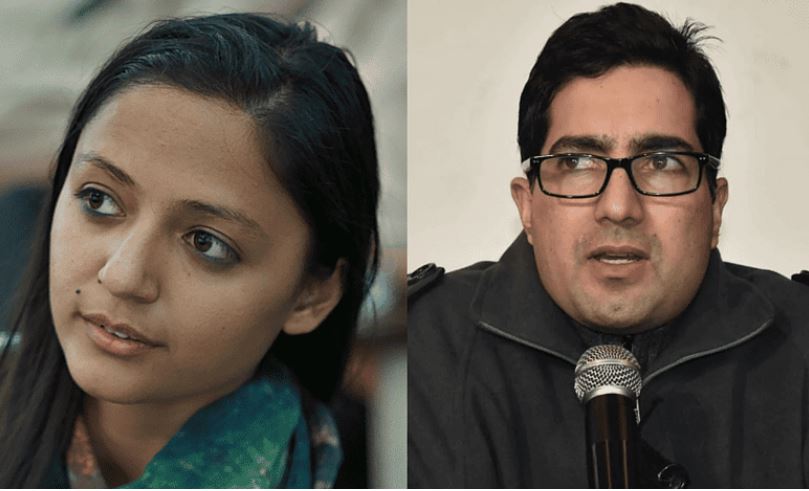
Shehla Rashid, Shah Faesal exit Article 370 petition, motive behind withdrawal unknown
text_fieldsActivist Shehla Rashid, and Shah Faesal IAS
New Delhi: The Supreme Court of India has granted permission to remove the names of activist Shehla Rashid Shora and bureaucrat Shah Faesal from the list of petitioners challenging the abrogation of Article 370 and the subsequent bifurcation of Jammu & Kashmir into two Union Territories.
The Constitution Bench, led by Chief Justice of India D Y Chandrachud, made the decision and scheduled the hearing of the pleas against the abrogation to begin on August 2, 2023.
Shah Faesal, the lead petitioner against the abrogation, had previously sought the withdrawal of his name from the petition. In a statement, he expressed that Article 370 was now "a thing of the past."
In a tweet, he stated, "370, for many Kashmiris like me, is a thing of the past. Jhelum and Ganga have merged in the great Indian Ocean for good. There is no going back. There is only marching forward."
Faesal, a 2010 batch IAS officer who secured the top rank in the Civil Service Exam, had resigned from his post in January 2019 and subsequently formed his own political party, the Jammu Kashmir People's Movement, in collaboration with Shehla Rashid.
However, in a surprising turn of events, Faesal withdrew his resignation in August 2020 after it was rejected by the Central Government, and he was reinstated in service.
Shehla Rashid Shora and Shah Faesal were two prominent individuals among the 23 petitioners who approached the Supreme Court in 2022 to challenge the Union government's decision in 2019. However, the apex court has now allowed their names to be deleted from the list of petitioners.
On August 5, 2019, the Central Government issued an order amending The Constitution (Application to Jammu and Kashmir) Order, 1954, thereby superseding it with The Constitution (Application to Jammu and Kashmir) Order, 2019.
This new order made "all the provisions of the Constitution" applicable to the state of Jammu & Kashmir. Additionally, Article 367 was amended to include a new Clause (4), which made the Constitution of India directly applicable to Jammu & Kashmir.
Subsequently, on August 6, the President issued a declaration under Article 370(3) rendering all clauses of the article inoperative, with the exception of the provision stating that all articles of the Constitution shall apply to Jammu & Kashmir.
The hearing on the abrogation of Article 370 is set to commence on August 2, 2023, and will proceed on a day-to-day basis, as announced by the Constitution Bench.
























